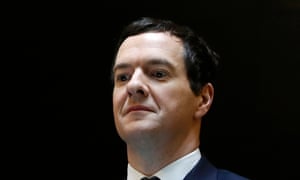
The border between journalism and politics has always been porous. High-profile journalist-politicians have ranged from Marat and Wilkes to Mussolini, and Trotsky to Kossuth. More recently, Alastair Campbell has led a long line of journalists into prominent positions in ministerial press offices. Some of the crossings are as well-trodden as a car park at the end of this week’s Cheltenham festival.
Journalists have gone on to prosper in British politics. Michael Foot, Nigel Lawson, Ed Balls and Boris Johnson are among the most famous. Occasionally, politicians have moved successfully in the opposite direction, among them Bill Deedes, Dick Crossman and Matthew Parris. For years this newspaper was owned and edited by a sitting MP, CP Scott.
By any standards, George Osborne’s appointment as editor of the London Evening Standard is a celebrity sprint across the no man’s land that separates high politics and serious journalism. Journalists have become chancellors before. But until now no former chancellor has edited a daily paper.
It’s not, yet, a complete defection, because Mr Osborne says he is keeping his Commons seat. He may also go on making the high-earning speeches that have brought him £800,000 in nine months. And he trousers £650,000 a year from the US fund manager BlackRock for one day’s work per week too.
Yet editing is hard, full-time work. So is being an MP. Making speeches and writing one’s memoirs takes time too. Mr Osborne is now Britain’s most celebrated trainee journalist. We welcome him to our world. But something will have to give in the Osborne portfolio. It should not be the journalism.